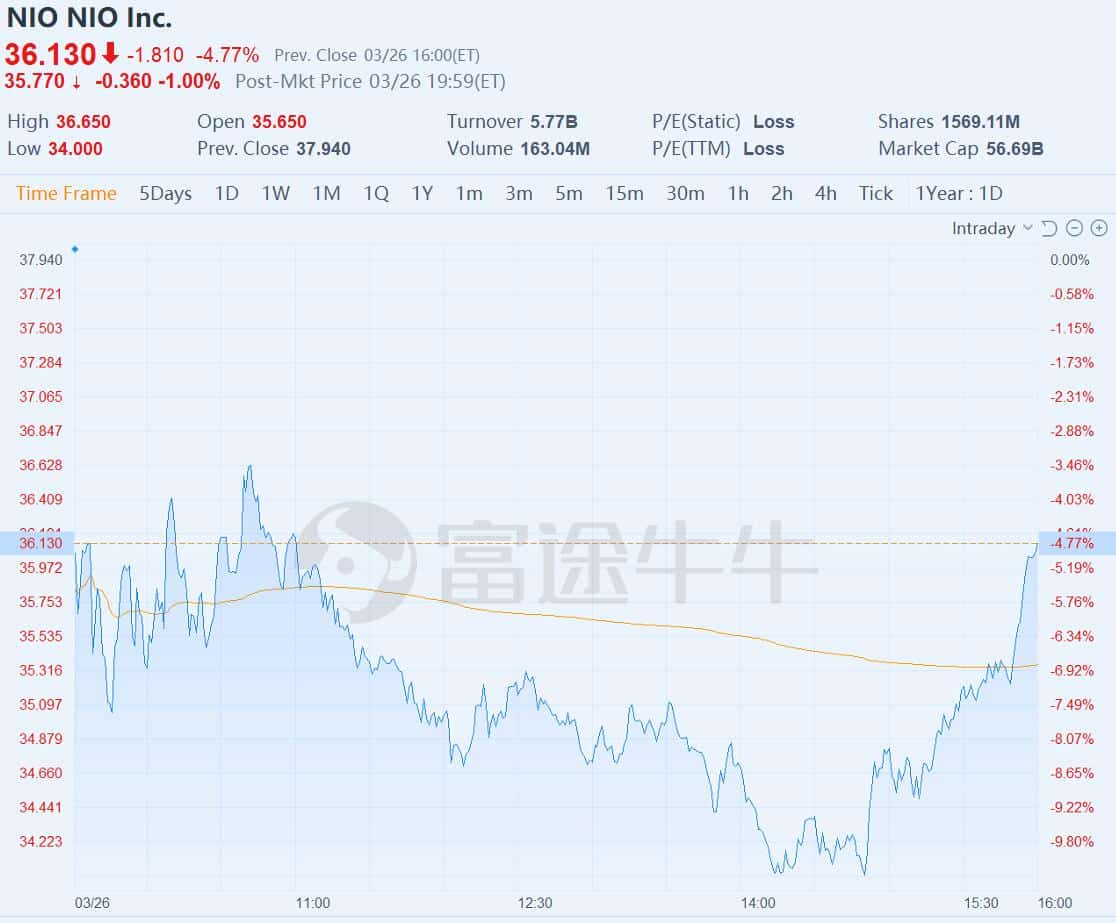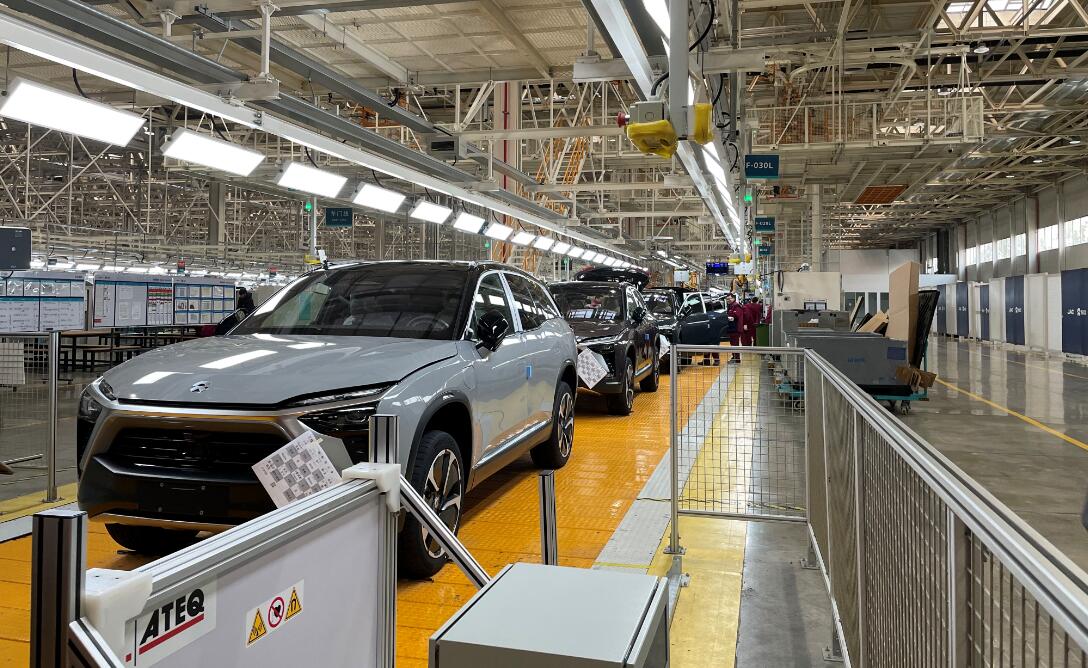The planned five-day suspension of production due to a chip shortage has put Nio in the spotlight, and the Chinese electric car maker said Saturday that it will be able to resume normal production after the temporary shutdown ends and is actively coordinating resources.
An unnamed Nio source told the China Securities Journal on March 27 that the chip shortage exceeded previous forecasts, and it is still closely monitoring the supply situation and actively coordinating supply chain resources.
"Production is expected to resume after five working days of shutdown, but the long-term supply situation remains to be seen," the source said.
On March 26, Nio announced that it had decided to suspend production at its Hefei JAC plant for five days from March 29 due to a shortage of chips. As a result of the news, Nio shares fell more than 10 percent at one point on Friday and narrowed to 4.77 percent at the close.
Nio said overall supply constraints for semiconductors have affected the company's production in March 2021. The company expects deliveries to drop to 19,500 units in the first quarter of 2021, down 500 units-1,000 units from previously released estimates of 20,000 to 20,500 units.
Nio's temporary production halt was not foreshadowed.
Previously, during the fourth-quarter earnings call, Nio founder William Li said that Nio has the capacity to produce 10,000 EVs per month, but was limited to 7,500 units due to a global chip shortage and battery supply constraints.
Li said at the time that he expected these resistances to subside and production capacity to increase by July.
In addition to Nio, several other major automakers have been hit by production shutdowns due to chip shortages.
Ford Motor this week halted production at a commercial vehicle plant in Ohio and cut production at a truck plant in Kentucky.
GM and Honda both said this week that their plants in North America will remain shut down for the next few weeks.
Volvo said Tuesday that the chip shortage would have a "material" negative impact on its second-quarter earnings. The company also said its global production plants will be shut down for several days starting in April.
To make matters worse, chip maker Renesas Electronics’ factory in Japan was hit by a fire on March 19, halting part of the production line for in-car chips and worsening the chip shortage faced by automakers worldwide.
Wei Yong, vice president of SAIC, said the current situation of chip shortage is caused by various factors.
The rapid recovery of China's auto industry took the industry by surprise, while the increased demand for chips from industries such as home appliances has affected chip supply in the auto industry, he said.
In addition, price increases have led to chips being hoarded, and snowstorms and fires that have affected the production of chip companies are also important factors.
On March 24, China's Vice Minister of Industry and Information Technology Xin Guobin hosted a seminar on the supply of automotive chips, pointing out that the country should focus on the current supply problem, tap the potential of the stock of chips and existing production capacity resources, and strive to ensure the smooth and healthy operation of the industry.
(Photo: CnEVPost)
At Nio Hefei. So many robots. pic.twitter.com/5IBcUorT6j
— cnTechPost (@cnTechPost) December 4, 2020

